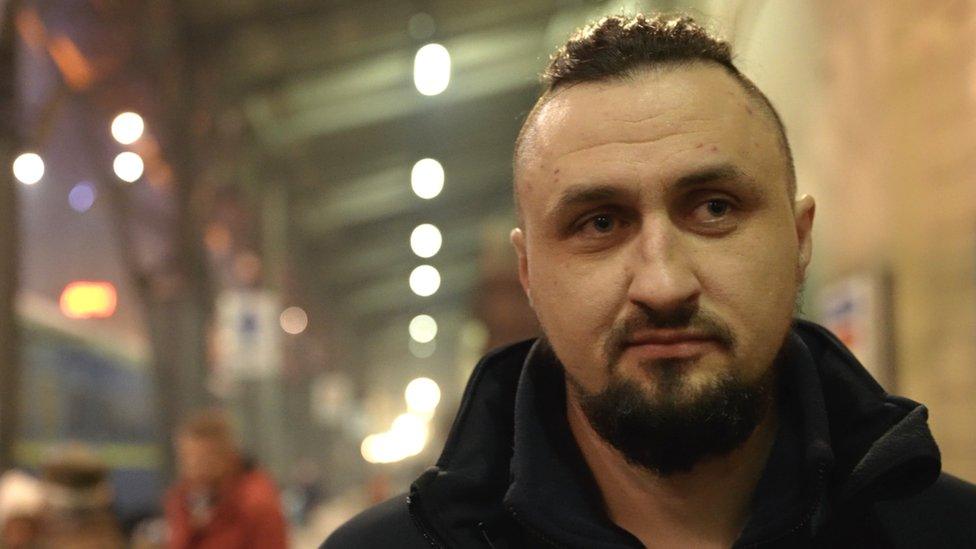Ukraine war: A dangerous escape on the 'Rescue Express'
- Published
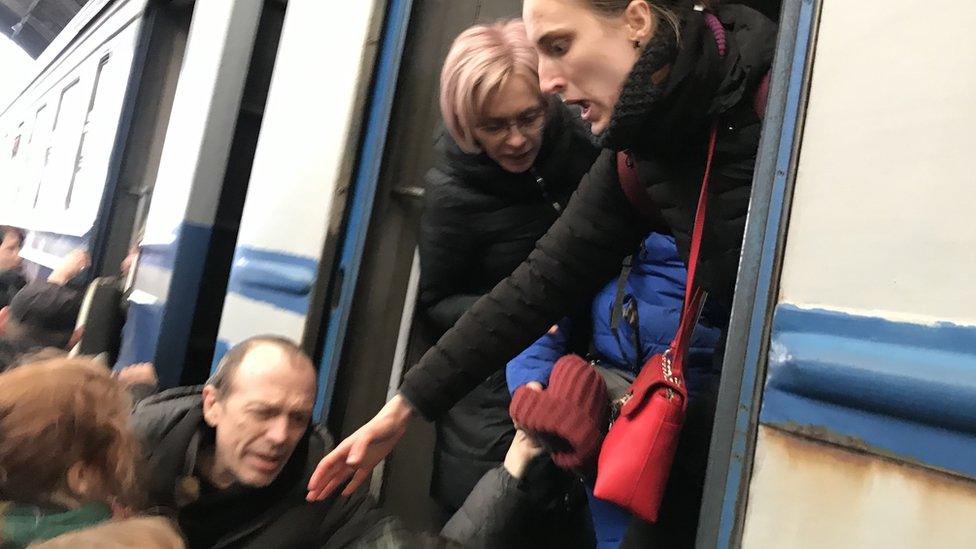
Passengers board the train in Lviv during the first days of the war in Ukraine
Ten million people have fled their homes in Ukraine because of the Russian invasion. Most head west to the relative safety of cities like Lviv - and many continue onwards to neighbouring countries. Our correspondent Fergal Keane met some of those who took the 91/92 train between Kyiv and Lviv - the "Rescue Express"

The air raid alarm in the station tower has just started: no bombs are falling, but nerves are fraying. The guard tells us to shelter with the refugees in the tunnel under the platform.
There are several thousand people here, in a long queue.
We wait among the anxious and exhausted, the families calming scared children, the elderly woman wrapped in a blanket and pulling a suitcase. She looks as if she cannot possibly walk another step. But she will trudge forward when the all-clear is given. This is not a place of options. Go forward, or run the risk of the war catching up with you.
Then a horn blares. A searchlight appears down the track to the east, a looming brilliance that grows larger as it approaches. Another horn sounds, followed by a conductor's whistle cutting through the clamour of the air raid sirens. A murmur ripples through the crowd. The all-clear is declared, and they can board a train to Poland.
After nearly a month reporting on refugees, I have taken to calling this extraordinary evacuation the "Rescue Express". Millions of Ukrainians have taken trains from as far south as Odessa on the Black Sea, from Kharkiv close to the Russian border in the north-east, from the Donbas and from Kyiv, and numerous smaller stations in between.
It has come at great human cost: 33 railway staff have been killed. Tracks and stations have been bombed.
The head conductor on Train 91/92 between Lviv and Kyiv is Ievgen Propokenko, a 40-year veteran of the railways. He comes from Kharkiv, which is now under Russian siege, and where his daughter and son-in-law also work to keep the Rescue Express going. The railways, he explains, run in the family.
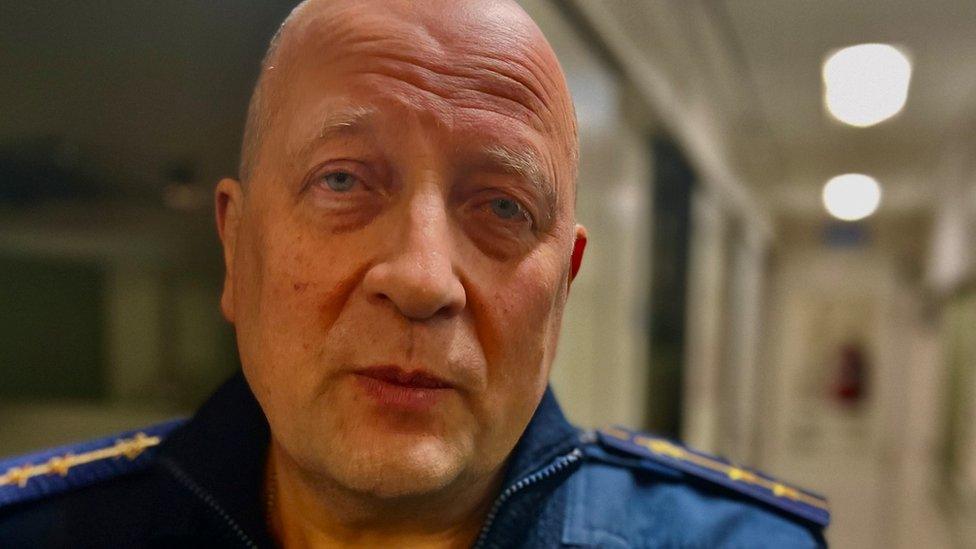
Ievgen Propokenko, head conductor on board the "Rescue Express" knows that his train could come under fire
"It is terrifying. My native city is being bombed," says Ievgen. "I can feel it and see it, but I cannot believe it."
He knows that his own train runs the risk of being attacked. One of the conductor's duties is to check that train windows are covered, so its lights don't present an obvious target for Russian aircraft.
"We can see the war in the faces of the people who come onboard. It is our job. It is what we have to do."
Also onboard is his younger colleague, Oleksandr Shevchenko, 31, the spokesman for the railways who is heading to an awards ceremony. The Prime Minister will be handing out awards to railway staff at the station in Kyiv.
This service is heading east back towards the conflict, and has only a few passengers. Sitting in a compartment before departure I met Petro Rocharan, a 25-year-old investment banker, who has volunteered to join a battalion defending the capital. Petro is a scout. He has had just three weeks' military training and he is frank about his feelings.
"I am rather scared honestly. I know Kyiv has been through a lot so far. Including the streets where I am going, where some of my friends are living, and I am just not sure if I am ready to see those buildings destroyed," he explains. Petro speaks of different waves of feeling: from fear to excitement and back to fear again.
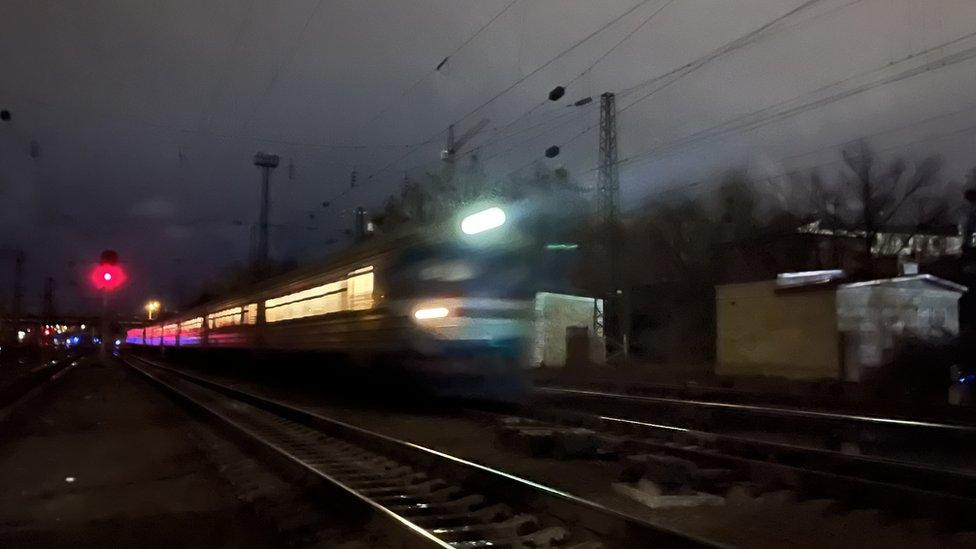
The lights of the train could make it a target in these dangerous times
The train pulls into Kyiv just after dawn, and Petro heads off in search of his battalion. New shifts of drivers, conductors and stewards start to arrive at the station. So do the buses carrying families from the embattled cities of Kharkiv, Mariupol, Kramatorsk and the suburbs of Kyiv itself.
Oleg Kryvospytska, 59, comes from Troyeschchyna in the northern suburbs of Kyiv and has brought his wife, Olena, his 29-year-old daughter Olga, and his granddaughters, aged six and 12.
But Oleg will not be travelling with them. He must stay behind and care for an elderly relative who is unable to travel.
Olena says that they will take the train to Lviv and stay for a few days before deciding where to go in Europe. "I have no words for this," she says. "This is something terrifying that I can't believe is happening. I'm currently taking sedatives every day to keep me calm, but even that isn't helping."
Oleg is a tall, strongly-built man and his wife Olena leans into him as the time approaches to board the train. They embrace, and sway gently from side to side. It is a portrait of fortitude and loss, rooted in the 30 years of their life together.
Oleg does not speak or cry. For the children's sake, he smiles.
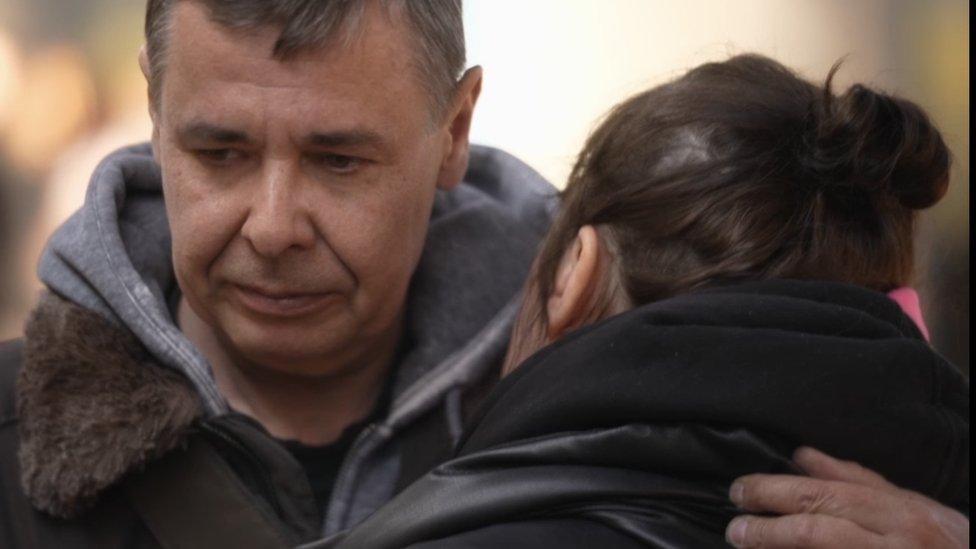
Oleg says goodbye to his family, but is careful not to shed any tears
Even as he walks alongside the departing train and can see Olena weeping, he keeps smiling and waving. The little girls shout: "We love you, we love you." His daughter Olga calls out: "Wait for us."
He will. Of course. However long it takes.
The train picks up speed. The horn blares and the carriages roll west, through the suburbs, away from the front line and out into the great immensity of Europe's second-largest country. It passes wheat fields ready for spring planting, through small and large towns, further and further from the war zone.
It is after 22:00 when the Rescue Express pulls into Lviv. Olga and Olena and the children are in the first carriage and it is dark on the platform. A conductor appears with a flash lamp and lights their way. The weary travellers gather their bags and walk towards the lights of the station.
In a day or two they will board another train, to Poland, peace and exile.

War in Ukraine: More coverage
Related topics
- Published24 March 2022
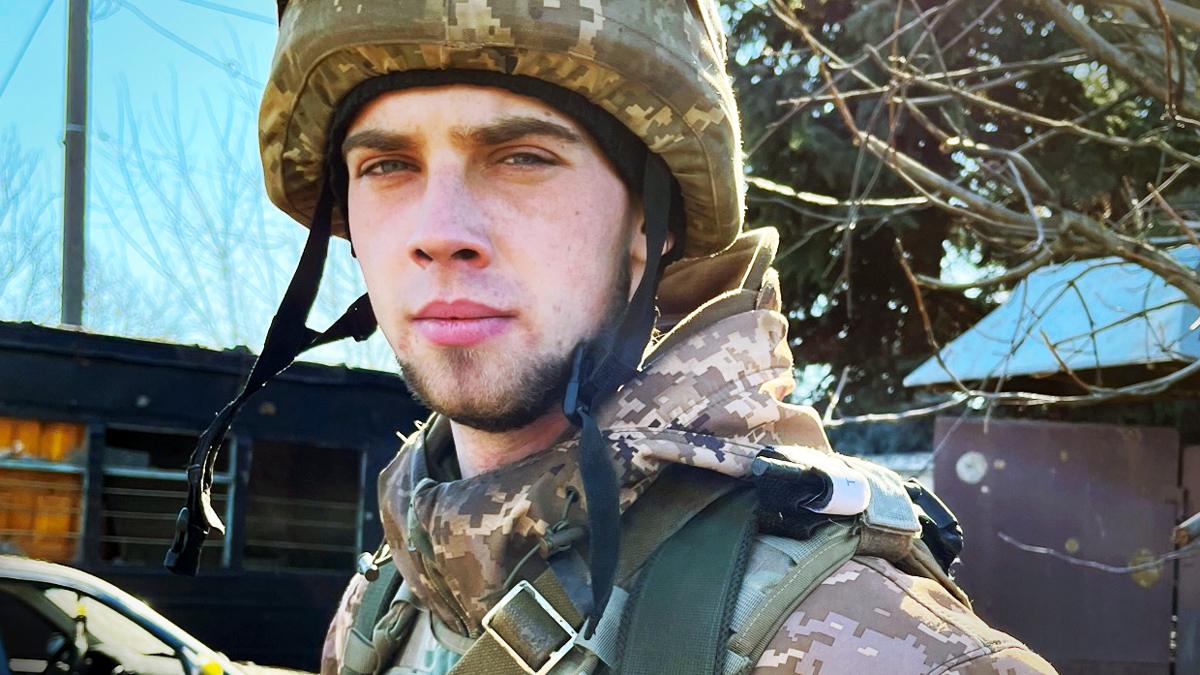
- Published22 March 2022
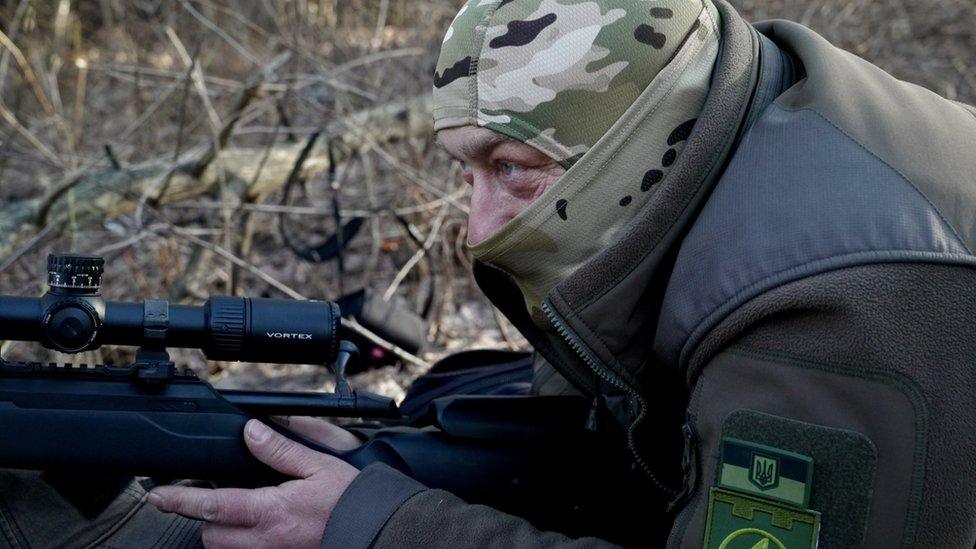
- Published15 March 2022
